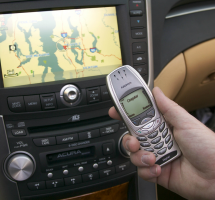— An Acura HandsFreeLink class-action lawsuit will proceed after a federal judge allowed a few claims to continue while dismissing the majority of the class-action lawsuit.
The HandsFreeLink lawsuit has 12 named plaintiffs alleging they purchased new or used Acura vehicles equipped with defective Bluetooth and HandsFreeLink systems that caused a “parasitic drain” on their electrical systems.
Acura advertised the systems as a way for customers to connect their phones to the vehicles and enjoy hands-free phone calls and other advantages, all at a premium price.
Within a few years of purchase, the plaintiffs allegedly began to experience electronic issues with their vehicles, especially with premature dead batteries. The plaintiffs claim they were forced to purchase several new batteries at their own expense and make other costly repairs.
According to the lawsuit, the electronic systems were failing because the HandsFreeLink systems drained the batteries at unusually high rates and affected other electronic devices, such as the alternator.
The plaintiffs say Acura was aware of defects in the HandsFreeLink system because in June 2005, Honda issued a technical service bulletin (TSB) to dealers that allegedly said the HandsFreeLink system “does not work” and may cause a dead or low battery.
In addition, the problem “effectively elude[d] diagnosis" and “once the HandsFreeLink™ defect compromises the battery, the system can ‘reset,’ hiding the problem until the system gets stuck again.” More bulletins were sent to dealers in 2008 and 2012 telling dealers the only way to fix the problem was to replace the HandsFreeLink systems.
The plaintiffs also claim the problem is a safety hazard because vehicles can stop operating while on the road.
The original lawsuit was filed in 2016 and then an amended lawsuit was filed alleging 69 counts under 11 state laws related to the HandsFreeLinks problems. Acura filed its motion to dismiss all the claims because they are untimely or fail as a matter of law.
The court granted Acura's motion to dismiss implied warranty claims under Delaware, Kansas, New Hampshire, Ohio, Texas and Virginia law considering the statutes of limitations for claims arising from a contract for sale is four years starting from the time of sale. The judge ruled none of the claims were brought within four years of purchasing their vehicles and are therefore untimely.
Except for one plaintiff, the California Legal Remedies Act and Unfair Competition Law claims are dismissed without prejudice, and the Delaware, Kansas, New Hampshire, Virginia, Texas and Florida consumer protection claims are dismissed without prejudice. The consumer protection claim under Ohio is also dismissed, but with prejudice.
However, the judge did rule certain claims related to California consumer protection laws and fraudulent concealment can proceed.
The Acura HandsFreeLink lawsuit was filed in the U.S. District Court for the Northern District of California - Mark Gerstle, et al., v. American Honda Motor Company, Inc.
The plaintiffs are represented by Hagens Berman Sobol Shapiro LLP, Seeger Weiss, Carella, Byrne, Cecchi, Olstein, Brody & Agnello, P.C. and Baron & Budd, P.C.

